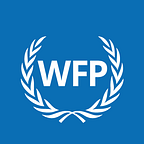Housainou Taal: Evidence guides our future actions
Evaluation helps us avoid making the same mistakes twice, says WFP Country Director in the Central African Republic.
Why is evidence important in WFP?
Evidence is the key. In fact, I can’t think of any serious work we can do without evidence. In terms of response to emergencies, we have to have evidence. We have to know where the people are, how do we respond to them.
“If we are changing lives, we need to have data. We need to know what are people’s needs. Evidence really guides our actions, and makes us more effective and efficient”.
How useful were the recent country strategic plan and decentralised evaluations in the Central African Republic?
The evaluations are key in terms of lessons learned because a lot of times we have to learn what has happened in the past, to do better.
Sometimes we are doing work like capacity reinforcement. In the early phases, you’re doing some training. But once we go deeper, the lessons learned really help us. Part of the lessons learned also includes discussing with beneficiaries how they have appreciated interventions, both in terms of attitudinal data and in terms of real data. So, what lessons have we learnt in terms of how efficient we have been for the project? And how effective have we been to design new projects? And this learning is very important for the project cycle. We do the needs assessments, looking at what we have learnt before, and then we design the new interventions.
What would you say was your biggest lesson learned from an evaluation?
I had one evaluation when I was in Sudan where I was asked to evaluate some WFP projects and we were doing water harvesting, soap making, many income-generating activities.
But when we evaluated these projects, we realised that a lot of them were not really based on the objectives of the communities.
So what we did was to ask the communities during that exercise, if WFP had not been here, would you still do this activity? The communities said they were not so much interested in most of the activities, because there was no element of sustainability. The only activity they were truly interested in was water harvesting. So when we redesigned the project, we took into account water harvesting as the key pillar, instead of being spread into so many activities which were not sustainable.
A lot of resources go into an evaluation. Would you say evaluation is value for money?
It’s very much worth the investment because without evaluation, we really cannot sharpen up our interventions. And evaluation goes hand-in-hand with evidence.
“When we have the evidence of previous interventions, we get smarter with the subsequent ones. Evaluation is always value for money.”
And I think it’s good to integrate evaluations earlier within the project cycle. That’s why we have results-based monitoring which includes an evaluation element.
How can we foster an evaluation culture within WFP?
Well, we can always foster evaluation through new projects, and new programmes, to say that, “look, we don’t just start new projects in a very arbitrary way”.
For example, in the Central African Republic, we are going to start or expand home-based school meals. We have to evaluate what we have done in the past, and what were our challenges, so that we have a better chance of succeeding.
We need to do evaluations with new interventions, but also old ones that are chronic. We have to do evaluations to know: Are we doing the right things? Are we really aligned? Especially with new changes, like climate shocks and resilience. Are we really focused on having impact, and results? And evaluation is key to that.
What message or advice would you give to newer country directors who are involved in an evaluation process?
My advice would be to really consider the findings and lessons learned, and then to always see whether these lessons have been taken into account when new projects are being designed. A lot of times we replicate the same mistakes, so we don’t learn from the past.
It does not only have to be long-term evaluations; we can do mini evaluations, decentralized evaluations. We can even do after action reviews, which might not be that formal.
We can combine qualitative and quantitative data to really have facts in terms of where we are coming from, how we’ve learnt from the past, and how we can project for the future.
